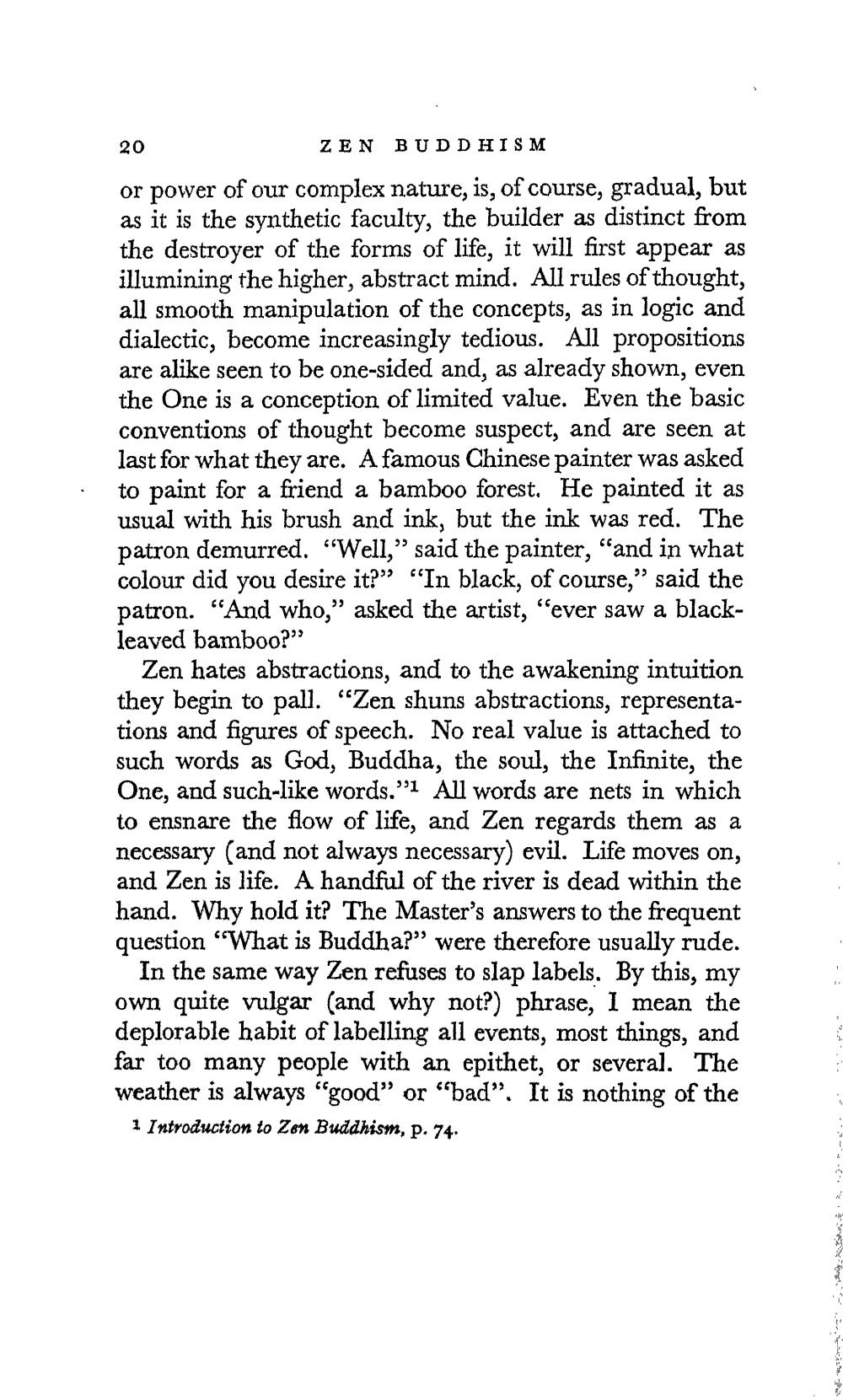________________
BUDDHISM
or power of our complex nature, is, of course, gradual, but as it is the synthetic faculty, the builder as distinct from the destroyer of the forms of life, it will first appear as illumining the higher, abstract mind. All rules of thought, all smooth manipulation of the concepts, as in logic and dialectic, become increasingly tedious. All propositions are alike seen to be one-sided and, as already shown, even the One is a conception of limited value. Even the basic conventions of thought become suspect, and are seen at last for what they are. A famous Chinese painter was asked to paint for a friend a bamboo forest. He painted it as usual with his brush and ink, but the ink was red. The patron demurred. "Well," said the painter, "and in what colour did you desire it?" "In black, of course," said the patron. "And who," asked the artist, "ever saw a blackleaved bamboo?"
20
ZEN
Zen hates abstractions, and to the awakening intuition they begin to pall. "Zen shuns abstractions, representations and figures of speech. No real value is attached to such words as God, Buddha, the soul, the Infinite, the One, and such-like words."1 All words are nets in which to ensnare the flow of life, and Zen regards them as a necessary (and not always necessary) evil. Life moves on, and Zen is life. A handful of the river is dead within the hand. Why hold it? The Master's answers to the frequent question "What is Buddha?" were therefore usually rude.
In the same way Zen refuses to slap labels. By this, my own quite vulgar (and why not?) phrase, I mean the deplorable habit of labelling all events, most things, and far too many people with an epithet, or several. The weather is always "good" or "bad". It is nothing of the
1 Introduction to Zen Buddhism, p. 74.
1
D




